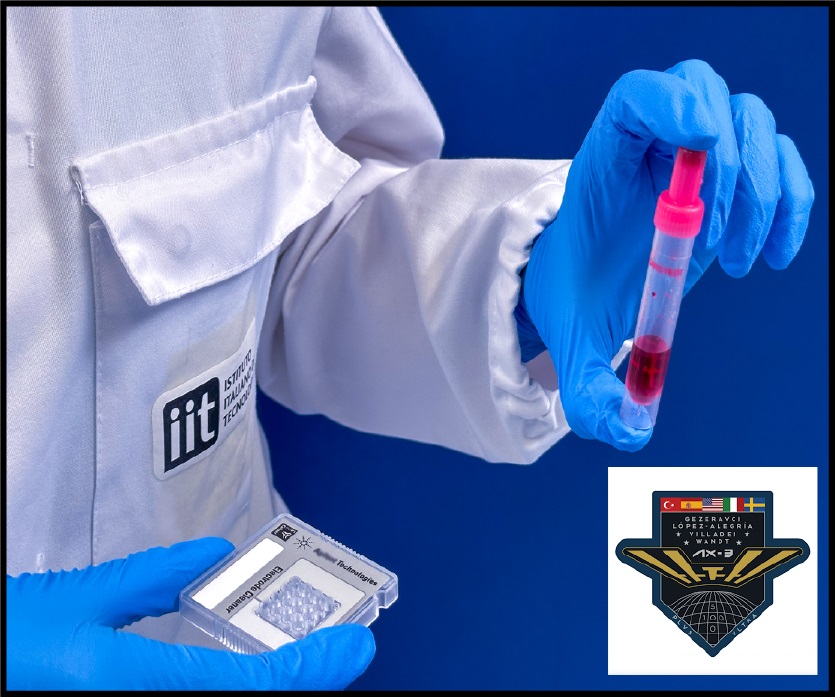A multi-Organ signature of circulating (small) noncoding RNAs as early predictors to study the astronauts’ physiologic changes occurring in microgravity conditions (AstRNAuts)
Research domain: LifeTech"AstRNAuts" is a space biomedical research project jointly conducted by ASI-IIT, in collaboration with the Italian Air Force and the Bambino Gesù Children's Hospital in Rome. This project is part of the Ax-3 commercial mission by the American company Axiom Space, with the flight scheduled for January 2024.
Microgravity and ionizing radiation, to which astronauts are exposed, cause premature aging and increase susceptibility to various diseases. Currently, there are no assays or predictive models that allow for the prediction and quantification of damage before it becomes irreversible. The "AstRNAuts" project aims to identify and characterize various combinations and types of circulating small non-coding RNAs (sncRNAs) as potential early biomarkers of physiological changes in astronauts in response to the space environment. The project will measure the presence of sncRNAs in body fluids and, using Artificial Intelligence algorithms, will develop a mathematical model for diagnostic and predictive purposes, to improve the efficiency and health of astronauts during long-term space exploration missions.
"Space research will have potential benefits on Earth in the field of human health, as the biomarkers and mathematical models could in the future be applied to the diagnosis and prognosis of age-related diseases, such as cardiovascular, immune system, and neurodegenerative diseases," says Davide De Pietri Tonelli, Principal Investigator of the project and Director of the "Neurobiology of miRNA" Research Line at IIT Genoa.
Project funding: Italian Space Agency (ASI)

IIT-SPACEiit scientist working on non-coding RNAs. (inset) AX-3 patch.
